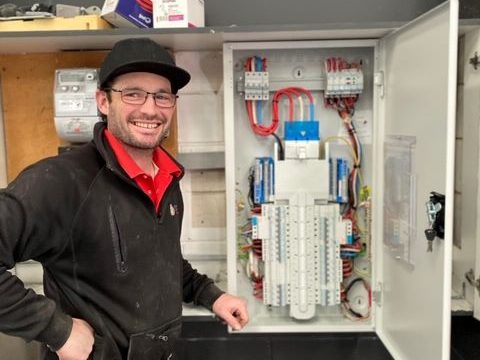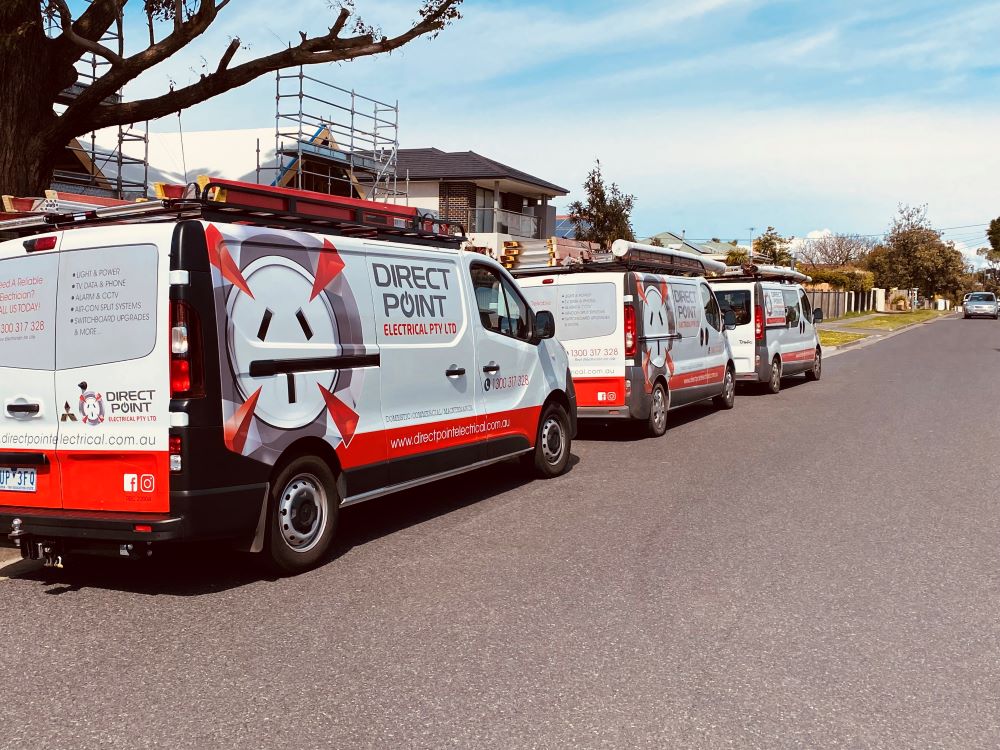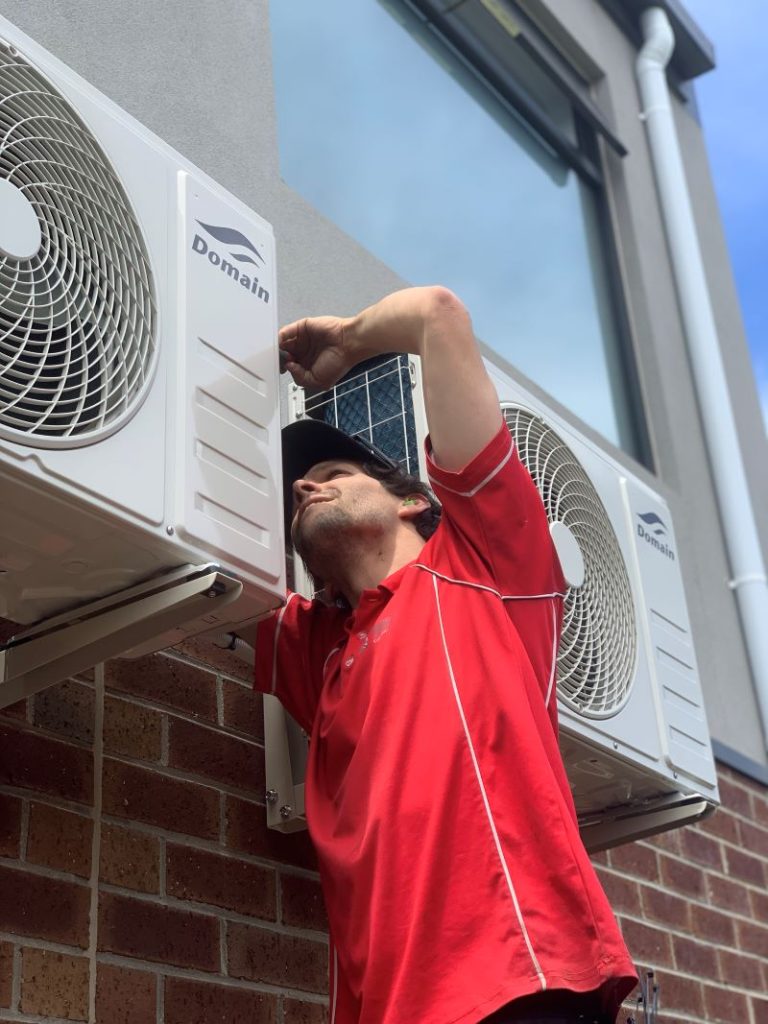Why Conducting Regular Electrical Safety Inspections is Essential for Every Home
An electrical safety inspection is a thorough examination of your home’s wiring, switchboard, power outlets, and safety devices. This essential evaluation guarantees adherence to the Australian Standard AS/NZS 3000 and uncovers potential hazards, such as overloaded circuits, faulty wiring, or absent safety switches. Conducted by licensed electricians, these inspections are crucial for averting dangers like electric shock, devastating fires, and damage to your cherished appliances. Regular inspections not only safeguard lives but also enhance the overall safety of your home.

Essential Electrical Safety Inspections Every Homeowner Must Prioritise for Peace of Mind
Numerous homeowners erroneously believe that their home’s electrical system is in perfect condition until a major issue arises. Yet, how can you ascertain that your wiring is not deteriorating behind the walls? Are you confident that your switchboard is functioning properly and not overheating? Regular electrical safety inspections are not merely a precaution; they are a vital requirement, particularly in older suburbs like Narre Warren and Rowville. Many homes in these areas are over 40 years old, and the original switchboards are often outdated, necessitating replacement. Whether you are buying, selling, renovating, or simply haven’t had an inspection for years, grasping the functioning and significance of these inspections is crucial for ensuring your home’s safety.
Comprehensive Overview of What an Electrical Safety Inspection Involves
An electrical safety inspection encompasses a detailed assessment of your property’s complete electrical infrastructure. A certified electrician will examine the condition, compliance, and effectiveness of:
- Wiring and cable insulation
- Power outlets and light switches
- Switchboard and circuit breakers
- Residual Current Devices (RCDs) or safety switches
- Earthing and bonding systems
- Appliance connections and load capacity
- Smoke alarm wiring (if hardwired)
- External weatherproofing of outdoor circuits
At Direct Point Electrical, we meticulously adhere to all relevant legislation and guidelines, including the AS/NZS 3000:2018 Wiring Rules, Energy Safe Victoria guidelines, and Victorian Rental Tenancy Regulations, ensuring your home is both safe and compliant with current standards.
The Importance of Electrical Inspections for Older Properties
Properties constructed prior to 1990 often employed outdated wiring techniques, including rubber-insulated and aluminium cabling. These materials are prone to deterioration over time, particularly in locations exposed to heat or moisture. If your home has not undergone rewiring or a thorough inspection in over 20 years, arranging for a safety inspection is absolutely essential. We often encounter severe issues, such as:
- Non-earthed outlets
- Oversized fuses
- Lack of smoke alarms
- Circuits without RCDs
- Undersized cabling for contemporary electrical loads
These problems pose significant hazards that can endanger your home and your personal safety, making timely inspections critical for maintaining a secure living environment.
Optimal Timing for Your Electrical Inspection: Best Practices
- Before purchasing or selling a property: This is often a requirement by lenders and is a recommended step for buyer diligence.
- Prior to renovations or significant appliance upgrades: Ensuring electrical safety before making modifications is critical.
- After experiencing flood, storm, or fire damage: Prompt inspections are necessary to identify any new hazards.
- If your home is over 25 years old: Regular checks are essential for older properties to ensure ongoing safety.
- As a landlord, during the preparation of a rental property: Compliance and safety checks are paramount to protect tenants.
Since March 2021, landlords in Victoria are mandated to conduct electrical safety checks every 2 years, in accordance with the Residential Tenancies Regulations 2021.
For additional information, please visit: Victorian Government Consumer Affairs.
Detailed Process of an Electrical Safety Inspection: What to Expect
Our licensed electricians perform a comprehensive walkthrough and evaluation of all accessible electrical systems, which includes:
- Testing every socket and switch for faults and functionality
- Checking polarity and voltage across all points to ensure safety
- Verifying the presence and effectiveness of RCDs to prevent electrical hazards
- Inspecting the switchboard layout, protection measures, and labeling for clarity
- Utilising thermal imaging to detect overheating components (when necessary)
- Conducting earth loop impedance testing to ensure safety
- Documenting any illegal or DIY wiring that may require correction
Once the inspection is completed, you will receive a comprehensive written report detailing:
- Existing hazards identified during the inspection
- Compliance status with current regulations
- Urgent repair needs (if applicable) to maintain safety
- Recommended upgrades to enhance safety
- Options for improving overall safety and compliance
Furthermore, we provide a Certificate of Electrical Safety (COES) for any rectification work undertaken during the inspection, giving you peace of mind regarding your home’s safety.
What to Do If Your Home Fails the Electrical Safety Inspection
There’s no need to panic if your home does not pass the inspection. Many properties we assess only require minor improvements, such as installing an RCD, replacing a few worn outlets, or addressing an overloaded circuit. If we uncover serious issues (for instance, non-earthed wiring or an outdated switchboard), we will prioritise safety risks and provide you with a clear, fixed quote for necessary repairs. For further details on our approach to updates, please visit our electrical services page.
Duration of an Electrical Safety Inspection: What to Expect
The duration of most inspections typically varies from 1.5 to 2.5 hours, depending on the size and accessibility of the property. If you reside in a double-storey or split-level home, or possess extensive outdoor power systems, the duration may differ slightly to ensure a meticulous assessment is conducted.
Financial Benefits of Regular Electrical Safety Inspections
Indeed, failing to identify issues such as leaking current, loose neutral connections, or improperly loaded circuits can lead to significant consequences, including:
- Increased power bills due to inefficient systems
- Shortened lifespan of your appliances, leading to costly replacements
- Risk of expensive repairs if problems go unnoticed over time
Moreover, identifying faults early on protects you from potential financial burdens and legal implications associated with an electrical fire or injury claims, especially if you are a landlord responsible for tenant safety.
Frequently Asked Questions About Electrical Safety Inspections
What distinguishes a safety inspection from an energy audit?
A safety inspection concentrates on identifying hazards and ensuring compliance with safety codes, while an energy audit evaluates efficiency and provides recommendations for reducing energy consumption.
Should I power down the system during the inspection?
It is not always necessary to turn off the power. Some tests may require brief disconnections, but the majority of the inspection can proceed with the power on, ensuring safety while evaluating your systems.
Am I liable for penalties if I neglect safety checks?
If you are a landlord, the answer is yes. Under the Residential Tenancies Act, failing to conduct bi-annual safety checks can lead to fines or complications with rental listings, which can have serious consequences.
Is a safety inspection necessary if my property has solar panels?
Absolutely, a safety inspection is essential. Solar systems encompass additional components needing testing, including isolators, inverters, and export limits, all of which must comply with safety standards.
Can DIY electrical work adversely affect my inspection?
It certainly can. Any non-compliant or unlicensed modifications must be rectified before we can issue a safety clearance, highlighting the importance of professional oversight in electrical work.
Your Reliable Local Electrician for Comprehensive Electrical Safety Inspections
Investing in electrical safety inspections is one of the most important and cost-effective protective measures for your home. These inspections can prevent tragic incidents, and if your property is older, has recently undergone renovations, or hasn't been professionally checked in years, now is the ideal time to take proactive measures.
Contact Direct Point Electrical today to arrange your professional inspection and guarantee your home’s electrical safety.
Dependable Local Electricians You Can Rely On for Quality Service
Electrical Safety Inspections Explained: What Melbourne Homeowners Must Know
The Article: Electrical Safety Inspections: Essential Guide for Melbourne Homeowners first appeared on https://writebuff.com
The Article Essential Guide to Electrical Safety Inspections for Melbourne Homeowners Was Found On https://limitsofstrategy.com



